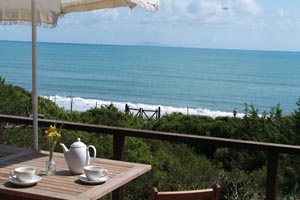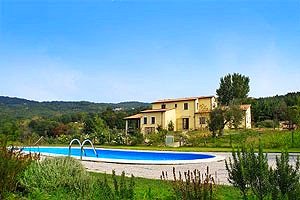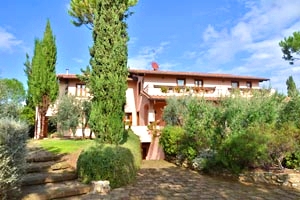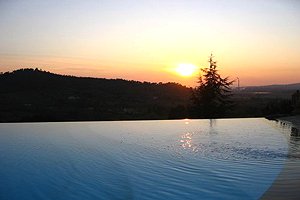



CENTURIES OF MAREMMA

The Umbrians were the first to settle on the hills of Maremma, followed, in the 8th century BC, by the Etruscans. The crafty and advanced people founded many small important towns, including Vetulonia, Vulci and Populonia, as well as Roselle, Orbetello and, in the eastern part of the region, Pitigliano and Sovana. Thanks to this network of towns the Etruscan could exploit the mineral resources of the area and devote to maritime trade up until their fall in the 3rd century BC.
The Romans provided Maremma with infrastructures: they reconstructed ports and roads and built an efficient channel network, which favoured the passage from pastoral farming and the cultivation of cereals to the cultivation of the olive tree.
With the barbarian invasions the population moved to the hilly areas of the hinterland, where many fortresses and castles were built during the Early Middle Ages. The coast was abandoned, and transformed into a wild region, where vast marshy areas were infested by malaria.
First Pisa, then Siena and lastly Florence and the Medicis governed Maremma and exploited its mineral and agricultural resources up until the 17th century. The coast was ceded to Spain. The Spaniards fortified Porto Ercole and Orbetello in order to defend them from the Saracens.
Most of Maremma, however, remained a marshy land, and it was only under the Grand Dukes of Lorraine that the reclamation of the area began. The long work went on even after the unification of Italy in 1861 and was concluded in the 1930s thanks to Mussolini.
After World War II the mining industry experienced a crisis, which forced Maremma to reinvent itself making the most of its wide historic, cultural, natural and food-and-wine heritage. Today spending some days in Maremma in a rental villa or farmhouse means having a holiday in an unforgettable place, where you can devote to plenty of different activities, at an excellent quality/price ratio!
Our most requested holiday homes:
 Villa in an extraordinary location on the beach of Castiglione della Pescaia (Grosseto), in Maremma. Sleeps 9/10, private pinewood, Internet connection, barbecue equipment. Tennis club, riding stable and golf club nearby.
More details
Villa in an extraordinary location on the beach of Castiglione della Pescaia (Grosseto), in Maremma. Sleeps 9/10, private pinewood, Internet connection, barbecue equipment. Tennis club, riding stable and golf club nearby.
More details
 Villa with pool near the Etruscan coast and the Gulf of Baratti, in the province of Pisa, in Upper Maremma - Val di Cecina. Sleeps 6/8/12, wide garden, Internet connection, air conditioning. Tennis courts and riding stables nearby.
More details
Villa with pool near the Etruscan coast and the Gulf of Baratti, in the province of Pisa, in Upper Maremma - Val di Cecina. Sleeps 6/8/12, wide garden, Internet connection, air conditioning. Tennis courts and riding stables nearby.
More details
 Elegant villa near Marina di Grosseto, just a few kilometres from the beaches of Maremma. Sleeps 12+6, wide park, swimming pools, hydromassage, gym, steam room, solarium area, Internet connection, air conditioning, children`s toys, pizza oven, barbecue. Riding stable nearby.
More details
Elegant villa near Marina di Grosseto, just a few kilometres from the beaches of Maremma. Sleeps 12+6, wide park, swimming pools, hydromassage, gym, steam room, solarium area, Internet connection, air conditioning, children`s toys, pizza oven, barbecue. Riding stable nearby.
More details
 Elegant villa on the Etruscan Coast near Scarlino, close to Follonica in Maremma. Sleeps 7/17, swimming pool. Air conditioning, satellite TV, Internet connection, barbecue, wide garden. Wonderful panoramic view on the gulf of Follonica.
More details
Elegant villa on the Etruscan Coast near Scarlino, close to Follonica in Maremma. Sleeps 7/17, swimming pool. Air conditioning, satellite TV, Internet connection, barbecue, wide garden. Wonderful panoramic view on the gulf of Follonica.
More details






